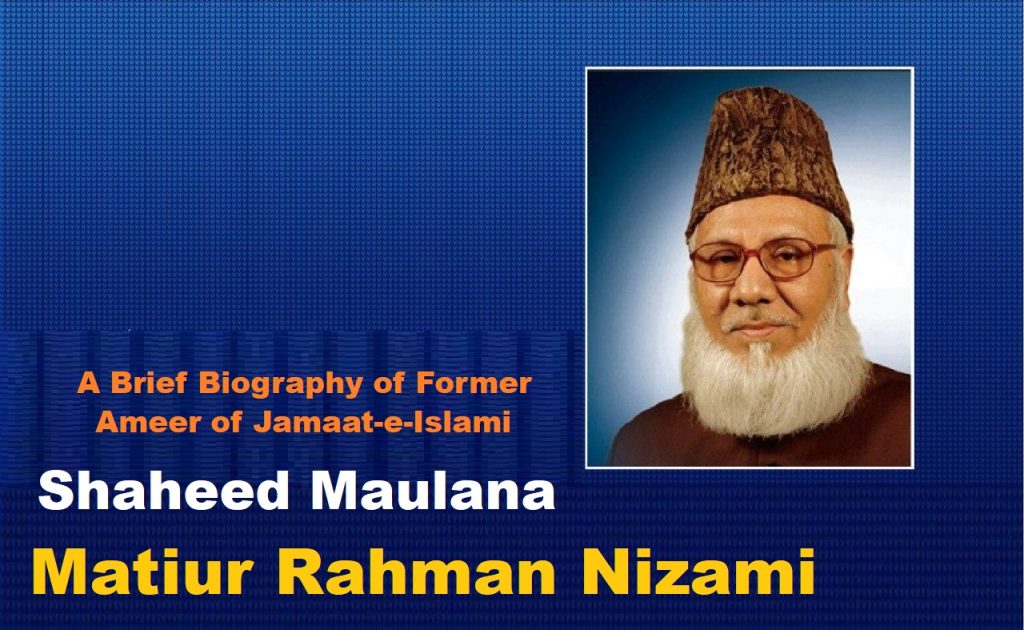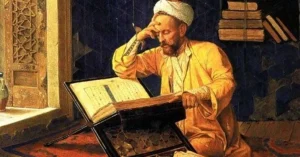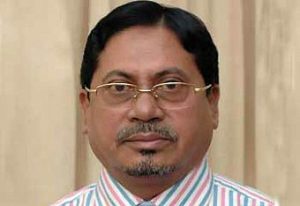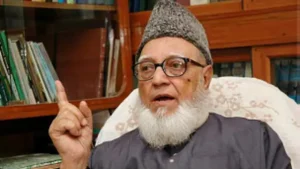
Shaheed Maulana Matiur Rahman Nizami
Legacy of a True Islamic Leader
Maulana Motiur Rahman Nizami led with principle, composure, and dignity. His integrity, knowledge, leadership, and patriotism secured him a permanent place in the hearts of the common people. His judicial killing marks a shameful chapter in the history of an independent nation.
In today’s Bangladesh, truth doesn’t convict—political stance does. And perhaps the most powerful proof of this harsh reality is Shaheed Maulana Nizami himself.
Symbol of Honesty and Integrity of Maulana Nizami
Maulana Matiur Rahman Nizami (رحمه الله) embodied honesty, justice, and principled politics. Throughout his political journey—even as a government minister-he consistently acted with remarkable integrity. People still recall his actions as unforgettable examples of moral uprightness.
Here are some documented and widely respected examples of his honesty:
1. Returning 27 Taka: A Symbolic Example of Honesty
When Maulana Nizami stepped down as the Minister of Industries in 2006, he noticed that only 27 Bangladeshi Taka remained in his official account. Instead of ignoring it, he returned the amount to the state treasury through a bank challan. This act has become a legendary example of transparency and personal accountability in Bangladesh’s political history.
2. “One House, One Farm” – A Revolutionary Initiative for Farmers
As Minister of Agriculture, he launched the “One House, One Farm” initiative to improve the economic conditions of farmers. He personally supervised field operations and ensured that no government funds were misused. No evidence suggests that he favored family members, friends, or party affiliates—his management was clean and principled.
3. Turning the Sugar Industry into a Profitable Sector
At a time when the sugar industry in Bangladesh was collapsing, Maulana Nizami stepped in with strategic reforms. As a result, the sector earned over 700 million taka in profit. Through his honest leadership, careful planning, and zero-tolerance policy against corruption, he brought the industry back to life. Furthermore, he rejected nepotism outright and consistently resisted political pressure to make partisan appointments—ensuring fairness and efficiency throughout his term.
4. Frugality in Government-Funded Foreign Trips
Unlike many ministers who chose lavish hotels and extravagant expenditures during foreign trips, Maulana Nizami followed a different path. He opted for modest accommodations and frequently covered expenses from his own pocket. Consequently, he significantly reduced the financial burden on the state. This consistent frugality clearly demonstrated his dedication to public service over personal comfort.
5. Detachment from Wealth Due to Ideological Commitment
Despite decades in politics, he never acquired personal property. He lived simply—owning no house or car, neither in Pabna nor in Dhaka. He treated all public resources as a sacred trust, not personal gain. His simple lifestyle reflected his deep ideological commitment
6. No Favoritism Toward Family or Relatives
As a minister and party leader, he never extended special privileges to his family or relatives. No records suggest misuse of power for personal benefit. He often said, “Public service doesn’t mean serving one’s family. Every citizen of this country is part of my family.”
7. Humility and Promptness in Relinquishing Government Privileges
After completing his ministerial term, he immediately returned all government facilities—including official residences and vehicles. Unlike many who delay or abuse their privileges, he acted quickly and voluntarily, showing his humility and respect for public property
Summary
The stories of Maulana Matiur Rahman Nizami’s integrity are not just legends—they are ideals to be followed by people of all political ideologies. His political life was marked by transparency, principled leadership, and self-sacrifice — a rare example in contemporary politics.





